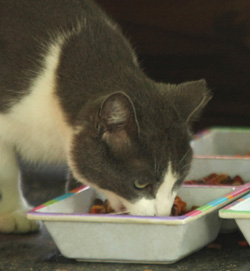 In 2007, the City of Baltimore enacted into law one of the country’s best ordinances supporting Trap-Neuter-Return and feral cats. Alley Cat Allies and a broad coalition of local residents and humane organizationsincluding caregivers, public health officials, and animal sheltersworked together over a period of years to build citywide support for Trap-Neuter-Return.
In 2007, the City of Baltimore enacted into law one of the country’s best ordinances supporting Trap-Neuter-Return and feral cats. Alley Cat Allies and a broad coalition of local residents and humane organizationsincluding caregivers, public health officials, and animal sheltersworked together over a period of years to build citywide support for Trap-Neuter-Return.
Alley Cat Allies generally advises against legislating TNR, since the act of TNR is completely legal. Even well-intentioned ordinances can cause more harm than good, because they may inappropriately penalize caregivers with fines or make it possible to continue to impound cats who are not in a sanctioned colony.
In particular the Baltimore ordinance can serve as a model for other jurisdictions looking to define key terms more accurately and in a way that supports citizens’ Trap-Neuter-Return efforts. The ordinance makes things better for cats, caregivers, and the community alike.
So what do we like about this ordinance?
- It defines “feral cats” correctlyas a member of the species Felis catus (the very same species as a pet cat) who is unsocialized to humans.
- It makes clear that a feral cat caregiver, although providing care to feral cats, is not the “owner” of feral cats.
- It also clarifies that the “return” in Trap-Neuter-Return is not abandonment.
- It recognizes eartipping as a sign that a feral cat has been neutered and vaccinated against rabies.
- It allows Trap-Neuter-Return to be an approved program for feral cats in Baltimore.
Remember, if your community is looking to put into place a policy that is in the best interest of cats, ordinances legislating TNR are not necessarily the way to go. Alley Cat Allies recommends implementing community-endorsed programs that support cats, such as affordable, accessible spay-neuter and community outreach and education about the best options for feral cats.

